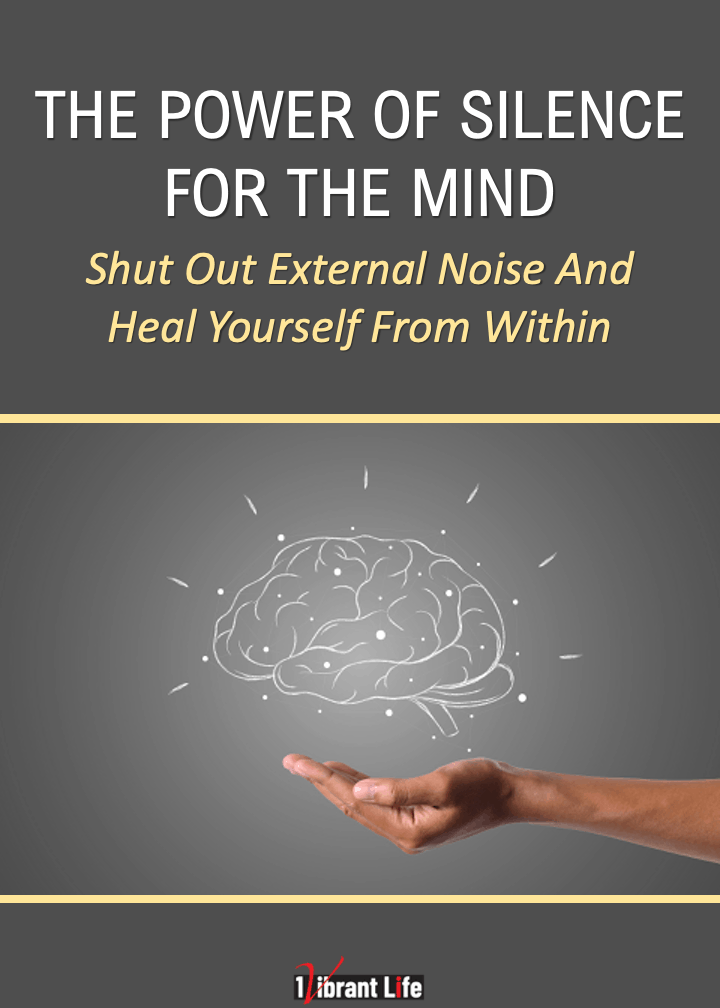What Is Personal Responsibility And What it Means For You
What is personal responsibility for you, and why is it so important? Personal responsibility means recognizing and accepting that you will either receive credit or the blame for any outcome in a situation or project you are involved in. This question of individual responsibility is one that many human beings never solidify as a foundational core value.
Difficult situations will arise in many areas of your life, and personal accountability and doing the right thing should always be included as one of the significant, clear goals in your personal development.
You are acknowledging any part you may have played and not getting caught up in the blame games that less responsible people might participate in. Being a responsible person, standing up for yourself, and accepting your efforts no matter the outcome is commendable and accountable behavior that your friends, family members, and peers will look up to you.
In many professional endeavors that may require participating in the care of others, your history and the regard or your disregard for your past personal responsibilities will be the significant factor in getting the job.
Table of Contents

“Everything you do is based on the choices you make. It’s not your parents, your past relationships, your job, the economy, the weather, an argument or your age that is to blame. You and only you are responsible for every decision and choice you make. Period.” ~ Wayne Dyer
Martin Ward | April 26, 2020
A Therapist’s Perspective on personal responsibility…
So much of what brings people to therapy revolves around issues of power and control. As adults, recognizing and owning our own power is a mark of maturity. That includes a recognition of our own personal responsibility to others and to ourselves.
Showing up for ourselves, taking responsibility for our own choices and our own actions can liberate us to challenge the ways in which we’ve been giving our personal power away.
Taking ownership of our personal responsibility, as this blog explains, is a way to regain control over our own life. Personal responsibility can help us to build resilience, to adapt to setbacks and disappointments.
We become masters of our own destiny, rather than blown about by the storms and gales of others demands.
What Is Personal Responsibility?
What is personal responsibility, and what does it mean for you? Personal responsibility can mean different things to different people.
But at the end of the day, personal responsibility is taking complete control and account of what you think and do, whether in the present moment or the past.
The first step in understanding what personal responsibility is, comes from understanding and taking control of your own unique thought process.
You need to do your own work, take stock of your core values, overcome any limiting beliefs that might be derived from them, and understand and recognize how you might act because of them in your personal life.
Having a solid sense of personal responsibility in our lives is one of the most basic needs in being a dependable person and growing into and becoming your best self.
It would help if you got good at examining the facts around what you are being asked to do, deciding to do, or being forced to do. It would help if you chose based on those facts as best you can and acted responsibly with that knowledge for everyone involved, including yourself.
Many people live with seriously “twisted thinking” based on their limiting beliefs and live with a victim mentality that keeps them from choosing the more responsible option that is always available.
The next time you do something or don’t do something, by choice or direction, know that whatever the outcome, it’s your own fault, and you are responsible for it.
Sometimes you do that thing when you are asked to do it. Other times you decide to do something because you want to, and you do it on your own, but in either case, you must understand the importance of personal responsibility.
If you have a task to accomplish, and you do it the correct and responsible way, you can screw things up, but a big part of getting through the negative consequences, surviving, and moving forward in the right direction is the acceptance of your degree of responsibility.
Now the second question is, will you take responsibility and accept the consequences that might come from your actions after things go wrong?
In an article in Psychology Today, Jennifer Hamady points out:
“Owning that you might have had a hand in creating what’s happening in the world around you doesn’t make you a sucker. Nor does it mean that you’re to blame for everything that’s going on.”
Some things are essential for a successful life, and taking personal responsibility is the number one key to creating a successful life and relationships with others.
Love is a two-way street, and so is responsible. People will only trust you and know they can depend on you if they are confident you have their backs.
When you take responsibility for yourself, you learn that everything in your life ultimately depends on what you do and not what others do.
Once you learn that, you truly become an adult, and moreover, you become dependable.

eBook

Audio eBook

eBook
Three personal growth tools for you as a gift for visiting 1VibrantLife.com
“Professionalism in art has this difficulty: To be professional is to be dependable, to be dependable is to be predictable, and predictability is esthetically boring – an anti-virtue in a field where we hope to be astonished and startled and at some deep level refreshed. ~ John Updike
Dependability Gets You Everything.
It is so easy to blame everyone else for everything. That’s why you’ll find that many, if not most, people are quick to blame everything on other external factors or someone else and not take responsibility for what they’ve done.
It seems that it’s never their fault. Someone else screwed up, or so and so, did this to cause the screw-up. Such and such happened, or it was out of my hands, etc., etc. Blah, blah, blah.
In almost any given situation, people who place the blame elsewhere are not dependable.
Jonathan Lister makes the point in a post he wrote in Chron that dependability is a critical element in the workplace;
“Dependability in the workplace leads to consistency.As a consistent member of the workforce, you begin to build your own niche as an essential element of the larger team. In short, your employer can count on your level of performance and he doesn’t have to worry about you giving less than your best effort.”
You know you won’t ever be able to depend on this type of person because you know that they will never take full responsibility for anything.
Give this kind of blamer a task, and they will be quick to take shortcuts, sidestep it, bob and weave around critical aspects, and drag their feet. It’ll probably be done late and poorly if they get it done.
People that do not take responsibility for themselves will certainly not take responsibility for you. You do not want to be this type of a person if you’re going to have a successful life.
You do not want to be this person, so don’t be. Take responsibility, and others will begin to understand that they can depend on you. Continued…

“Success is walking from failure to failure
without loss of enthusiasm.”
~ Winston Churchill
Making Mistakes And Failing
Taking personal responsibility is a crucial skill in life. It means having the courage to take chances and then taking full responsibility when bad things happen or when you fail or make a mistake.
And bad things happen, and you will fail and make mistakes.
The good news is that you can take a deep breath, suck it up, apologize for it, learn from it, accept that you’re only human, just one person, and then reset and try again.
Failing is the only way to succeed.
The bottom line is that you cannot succeed at anything unless you try, and then keep trying until you either grow or learn that what you are trying to do cannot be done. If it’s the latter, you can move on, knowing you did your best, and try again with something new.
Mike Robbins is the author of several books, which include Focus on the Good Stuff, Be Yourself, Everyone Else is Already Taken, and Nothing Changes Until You Do.
In an article he wrote for Huffington Post, Mike pointed out the value and the power of allowing for mistakes:
“By giving ourselves and others permission to make mistakes, we actually create an environment within our own being and within our key relationships and teams, that is conducive to trust, connection, risk-taking, forgiveness, creativity, and genuine success.”
People with a lack of personal responsibility will most likely tell you why they couldn’t accomplish a task, and you can bet that they will tell you someone or something else was to blame too.
An unreliable person will not tell you they failed or made a mistake.
Nobody wants to fail, and no one wants to admit they’ve failed others.
Every single day, in governments and companies around the globe, real leaders can be depended upon to take full responsibility for their failures.

Only $7.99
Limited Time Offer
Plus Two FREE Bonus Ebooks
Boost Your Self-Confidence, Self-Esteem, And Self-Image By Identifying And Overcoming Limiting Beliefs
✅ Build More Confidence
✅ Create Fulfilling Relationships
✅ Increase Your Self-Esteem
✅ Renew A Passion For Life
✅ Improve Sense Of Well-Being
✅ Turn Self-Doubt into Self-Belief
✅ Reduce Worry, Stress, Anxiety
Overcoming Your Doubt And Disbelief
“The only limit to our realization of tomorrow will be our doubts of today.” Franklin D. Roosevelt
No one will ever be a more significant critic than we are of ourselves. This is where you need to find a way to overcome your negative, self-deprecating thinking, which everyone lives with to some extent—realizing the power and capacity of your true self.
You are not unique or less than others because those negative thoughts exist in your mind.
You don’t get stuck when you learn to accept what is over and done with, moving forward after making a mistake or don’t at something instead of dwelling in the pool of self-pity.
Getting stuck because you failed or made a mistake will only help ensure that you never succeed.
When you can learn to reprogram your mind when this type of negative thinking occurs, you will get to the finish line and accomplish anything that you try to do. You will become your own cheering squad; you can become the mentor.
The process of reprogramming and reshaping your mind to counter negative thinking is relatively easy to do and very powerful.
Take a moment and write down any of the positive things about you and your life that you know to be true—all the positive things from your past or your recent and present experiences.
For example, you finished high school, and maybe even that you were B+ or even an excellent C+ student. Or you are great at math or science.
You are a fantastic bowler, just finished your sixty-third and most fabulous panting ever, an excellent cook, etc., get it?
You will probably be shocked that you filled up a whole page and started oisn’tecond. Surprising, isn’t it? All those fantastic positive things about you.
Now fold that piece of paper up, stick it in your wallet or your purse, and carry it wherever you go.
Whenever your negative mind begins to tell you one can’t, anotheryou’reyou can’t, or that yoyou’re’ot good enough or you’re not this or that, pull this list out and read it to yourselDon’tht then and there.
Don’t wait until you get home or until your next coffee break. Stop and do it right then and there, even if you are in a meeting.
Do this every time a negative thought about yourself comes into your mind.
Over time, you will begin to reprogram your mind to tell itself the truth abYou’llo you indeed are. You’ll overpower the repetitive, deceptive, and personally destructive negative mind.
This is a straightforward approach to overcoming negative thinking. You may have just discovered it for the first time; however, it is one of the most potent forms of psychotherait’sracticed today, and it’s bIt’saround for decades.
It’s called Cognitive Behavioral Therapy CBT, developed in the 1950s by Dr. Aaron Beck.
Here is an abridged but relatively concise description of Cognitive Behavioral Therapy from the Instructors Guide on CBT by Aaron Beck, published b” Psychotherapy.net:
“The cognitivepeople’sescribes how people’s perceptions of, or spontaneous thoughts about, situations influence their emotional, behavioral (and often phys”ological) reactions.”
Becoming personally responsible for your actions means taking control of your mind, body, and the world around you.

Taking Personal Responsibility For Your Personal Growth
“Every moment of one’s existence, one is growing
into more or retreating into less.” ~ Norman Mailer
If you are not willing to learn and grow as a person throughout your life, then you don’t get why you are here on this earth in the first place.
The meaning of life is the experience of life itself. You stop living when you stop learning, growing, experiencing, and trying new things.
One of the most important things about personal responsibility is knowing, accepting, and being grateful for what is really good in your life.
Allow yourself to dream and imagine what you might want to do with all time you have in front of you. This is vital for a growing, joyful, and inspired life.
I am reading, listening, eating, traveling, falling in love, finding, trying, and sometimes even losing and being heartbroken.
Being personally responsible for your own life and taking chances will lead you down that road less traveled that will enliven your spirit.
You will learn along the way that others will follow you because they will know that one way or another, you will lead them to the finish line.
They will know that they can depend on you, and in the end, you will know that’s the person you’ve always wanted to be.

My Name is Marty Ward and I’m the creator and publisher of the 1-Vibrant-Life blog.
At the age of 26, in 1984, I was injured in a car accident in which I sustained a traumatic brain injury.
At the time of the accident, I was having a fairly successful life as a musician in Chicago, which included a recent appearance on Star Search 84′ with Ed McMahon and preparing to be included in a group major independent recording contract.
However, after my accident, I was unable to perform or play my instrument. I was out of work and I had lost all confidence in myself and my abilities, felt lost and with no direction.
My injury and my recovery led me down a path of self-improvement, and self-discovery which gave me my life back filled with many amazing experiences and a newfound sense of hope. Learn more about my story on the 1-vibrant-life about page.
CBTCP Certification (Cognitive Behavioral Therapy Certified Practitioner) | 10-16-2021 Certification From The Academy of Modern Applied Psychology, in The Transformative Science of Cognitive Behavioral Therapy, CBT

Claire Law is a UK-based Counsellor and Psychotherapist from Preston, Northern England. Claire became a therapist after a career of almost two decades of High School teaching experience. She’s also worked extensively in the Social Care and Charity Sectors, and as a Mental Health Advisor in Higher Education. Claire combines her current Psychotherapy practice with freelance writing on Mental Health, Wellbeing and Psychology topics. She has a passion for Social Justice and environmental causes.
Claire holds a degree from Nottingham University, a Post Graduate Certificate in Education from Leeds Trinity University College and a Post Graduate Diploma in Integrative Psychotherapy from the University of Central Lancashire. She’s completed a wide range of extensive training and certifications in Domestic Abuse, Survivors of Sexual Abuse & Sexual Violence, Suicide and Self-Harm, Expressive Arts Therapy, Gender Variance, Online and Telephone Counselling and Polyvagal Regulation developed by Stephen Porges, a professor of psychiatry at the University of North Carolina and “Distinguished University Scientist” at Indiana University.

